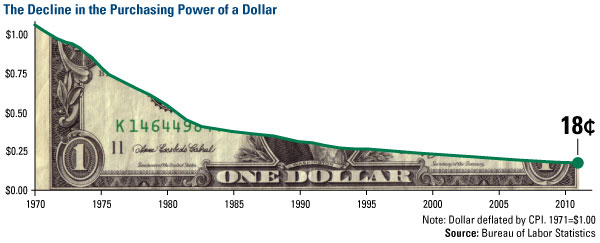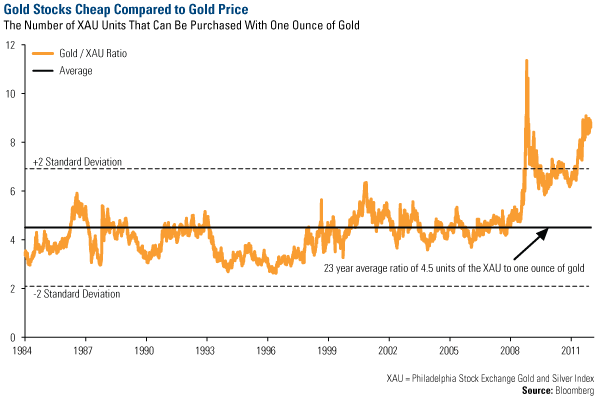Highlights from
Federal Reserve Chairman Ben Bernanke's testimony on Tuesday on the state of
the U.S. economy to the Senate Budget Committee. Bernanke's
prepared testimony was virtually identical to testimony on Thursday to the House
Budget Committee.
BERNANKE ON THE IMPORTANCE OF
LONG TERM FISCAL PLAN:
"Its very clear ... the U.S. federal deficit
will become unsustainable within 15 or 20 years at the most. Possibly some of
those effects will even be brought forward by markets, for example. So, we
clearly need some major changes in our fiscal planning and our fiscal path
going forward. ... These are concerns which are not just about our children 20
years from now but they could have effects much sooner if markets begin to
loose confidence in our nation's ability to stabilize our debt burden."
BERNANKE
ON NEED TO MORE URGENTLY ADDRESS STRUCTURAL FISCAL ISSUES:
"Certainly you do. In fairness to the
hardworking people here, I would say that there is a lack of clarity to some
extent among the general public. I think people have conflicting views about
what they want. Everyone wants a lower deficit but nobody wants to lose their
own program or their own tax cut. So it is difficult. I understand. But
absolutely, I think we would all benefit from action to credibly and strongly
articulate a plan that would bring our fiscal situation into sustainability
over the next couple of decades."
BERNANKE
ON U.S. BANKS EXPOSURE TO EURO ZONE BANKS:
"Banks have made progress in protecting
themselves against problems in European sovereign or bank debt. But I would
agree that if there is a very substantial crisis or similar problem in Europe
that, because there are so many channels in which that would flow to the
financial system, our banks, our whole financial system would still be
significantly affected."
BERNANKE
ON IMPACT OF LOW RATES ON SAVERS:
"There are single-mandate central banks like
the Bank of England and the ECB that have policies very similar to the Fed.
Given that inflation is close to target I don't think that we'd be doing a
radically different thing if we had a single mandate at this particular point
in time. We're quite aware of these costs and risks. ... With respect to
savers, for example, it's true that low interest rates reduce the returns that
savers get on their savings but I would make the general point that savers
don't hold just, say, Treasury bonds. They also hold corporate debt and stocks
and a variety of other securities and returns on those securities depend very importantly on the
strength of the economy. So in
trying to strengthen the economy we're helping to improve the returns to
savers."
BERNANKE
ON EFFECT OF FED POLICY ON TREASURY RATES:
"I think that the effects of Fed policy,
independent of the all the other factors, on Treasury rates is modest. And in
any case, rates will rise, eventually. And if investors were to lose confidence
in U.S. federal fiscal policy, there's nothing the Fed could do to prevent
those rates from rising."
BERNANKE
ON NEED FOR LONG-TERM PLAN TO REDUCE BUDGET DEFICIT:
"This is a very long-term problem. It
doesn't have to be done all today. On the other hand, gesturing towards the
future without taking any concrete steps or credible steps is not going to be
effective either. So, I think the more you can demonstrate a will and
commitment to sustainability over the longer term - by which I mean at least 10
years but beyond that if possible - the more flexibility there will be to
address near-term concerns relating to the recovery and so on over the next two
to three years. But you need both."
"Just simply promising future action risks
at least an adverse market reaction, an adverse reaction in terms of confidence
and so on."
"We're
looking still at a couple more years of recovery, but
there's nothing that stops us from very soon also laying out in some detail and
with some commitment what the longer-term plan is to address the fiscal
problem."
BERNANKE
ON DUAL MANDATE:
"We are not going to seek higher inflation
in order to advance unemployment. ... You could have shocks that would drive
both objectives away from their target, in which case in a very symmetrical way
we would be returning both parts of the mandate towards the target. But we have
to take into account the other part of the mandate. It could affect the speed
at which we return inflation to target, but by the same token if inflation is
high it could affect the speed at which we return employment to target. There has
to be some interaction of those two things.
BERNANKE
ON EMPLOYMENT TREND:
"Our
forecasts are for unemployment to continue to decline moderately. We see growth at something
close to potential, which under normal circumstances would mean that we are
creating enough jobs to employ new entrants to the labor force but not making
sharp improvements on the unemployment rate."
BERNANKE
ON EFFECT OF DROP IN U.S. EXPORTS TO EU:
"We've already seen some decline in exports
to Europe, although exports to Europe are about 2 percent of our GDP so it's
not totally make-or-break. But it is an influence."
BERNANKE
ON CONSUMER CONFIDENCE:
"If you look at the consumer confidence surveys, people are saying
that they don't expect to see their real incomes grow. They expect that their
financial situations are going to be flat to down in the next few years. And
that's not a situation that encourages people to buy a house or start
a business or anything like that."
BERNANKE
ON POTENTIAL IMPACT OF OIL SUPPLY DISRUPTION:
"As we saw in a modest way early last year,
a significant increase in oil prices can be very disruptive, both because it
creates inflation and also because it acts like a tax on consumers. ... A major disruption that sent
oil prices up very substantially could stop the recovery."
"That being said, I think one of the more
encouraging things of the last several years is the fact that with new
processes and approaches, the U.S.
is becoming a much more prolific producer of fossil fuels and is also making
progress on non-fossil forms of energy. For the first time in some time
I think there's a chance we can
move in the right direction in reducing our exposure to foreign supply
disruptions."
BERNANKE
ON TIMING, CREDIBILITY OF GETTING FISCAL SITUATION UNDER CONTROL:
"The cumulative effect of all these
different things - (the) expiration of the payroll tax, the sequestration,
expiration of the Bush tax cuts and other things - collectively would be a
fairly sharp change in the near term fiscal position. I'm not saying don't pay
for it. I'm just saying do it over a longer period of time, and do it seriously.
I agree with Senator Sessions' concern that it's just push it off (to) manana.
You don't want to do that. You want to make a credible strong plan, but one
that phases in over a period so the economy will not hit a huge pothole."
BERNANKE
ON ENTITLEMENT SPENDING:
"Under the current plans if there's no
change to our entitlement programs, then the demand for spending, the amount of
spending the government is committed to, is going to rise. ... So at some point
Congress is going to have to make a tradeoff between what its spending programs
are and what taxes it's willing to raise. I've often said I'm in favor of the
law of arithmetic: if you want a low-tax economy which has benefits from (an)
efficiency perspective, then you've got to make the tough decisions on the
spending side. And vice versa if you want to spend more you've got to figure
out how to raise the revenue. I'd
mainly try to urge Congress to make sure they're looking at both sides so
there's a balance between the two."
BERNANKE
ON NEED TO LOOK BEYOND 10 YEARS IN CUTTING BUDGET DEFICIT:
"We need a long-term plan to put our debt
to GDP ratio, our overall fiscal burden on a sustainable path."
BERNANKE
ON UNEMPLOYMENT:
"We are concerned that over the past few
years that there has been some modest increase in the sustainable rate of
unemployment. One of the factors contributing to that is the fact that about 40
percent of the unemployed have been unemployed for six months or more and those
folks lose skills, they lose attachment to the labor force. It makes it
difficult for them to find steady employment in the longer-term. Monetary policy really cannot
do much to bring unemployment in a sustainable way below those levels. Other policies affecting
skills, the structure of the labor market, fiscal policy and trade, all kinds
of other policy could affect and bring down that sustainable rate of
unemployment and I hope Congress will consider ways to address that
problem."
BERNANKE
ON IMPACT OF LOOMING TAX INCREASE IN 2013:
"I don't know exactly when uncertainty would
become a factor, but surely when we get closer to January 1st and Congress has
not given a clear roadmap for how it plans to proceed, that would certainly
effect planning - business decisions, household decisions - as they look ahead
to next year."
BERNANKE
ON THE INFLATION OUTLOOK:
"The energy price increases of early last
year have not recurred. Our projections are that inflation is going to remain
very subdued, probably below our 2 percent target going into 2012 and 2013. So, because monetary policy
works with a lag we have to think about where inflation is going to
be, not where it has been in the past. Inflation has averaged
about 2 percent a year over my tenure as chairman and we expect it to be at 2
percent or below in the next couple of years. So we think that is entirely
consistent with an accommodative policy."
BERNANKE
ON FED'S ADOPTION A 2 PCT INFLATION TARGET:
"I want to disabuse any notion that there is
a priority for maximum employment. We say very explicitly, we take a balanced
approach. Congress gave us a dual mandate. We work to bring both sides of the
mandate back towards the target. The main goal of that statement was not to
announce any change in policy. The main goal was to give greater clarity about
how we define
these long-run objectives. But we are certainly going to be working to
bring both parts of mandate towards desired levels."
via [ Reuters ]
 $35,000 “is the minimum ante to be on the radar,”
says Schoen. That’s the legal maximum contribution to an election
effort—$2,500 each for the primary and general phases to the campaign
committee, plus $30,800 to the national party committee. “You get
invited to events and somebody will return your call. It used to be that
that had a bigger impact, but you’re not going to be ignored.”
$35,000 “is the minimum ante to be on the radar,”
says Schoen. That’s the legal maximum contribution to an election
effort—$2,500 each for the primary and general phases to the campaign
committee, plus $30,800 to the national party committee. “You get
invited to events and somebody will return your call. It used to be that
that had a bigger impact, but you’re not going to be ignored.”












